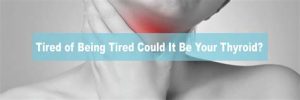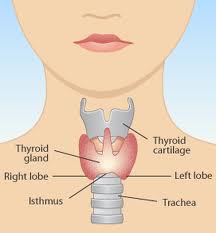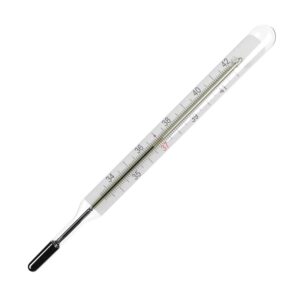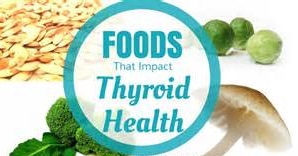 Thyroid Nutrition Support
Thyroid Nutrition Support
Thyroid Nutrition supports thyroid hormones. Your thyroid is best known for regulating the body’s metabolism. The thyroid organ breaks down food and converts it to energy. The thyroid gland is located in the lower front part of the neck. Thyroid hormone receptor sites are found in every cell of the body. Every cell in our body depends on thyroid hormones. If your thyroid doesn’t operate optimally, neither will the rest of your body.
What whole food supports thyroid nutrition?
- Iodine/Selenium-rich Foods:
Nuts, seeds, and iodine (seafood, shellfish, seaweed, vegetables, and root vegetables), beef liver and kidney, eggs, sunflower, and sesame seeds, brazil nuts, mushrooms, garlic, onions, and kelp.
-
Live enzyme-rich Foods
ORGANIC FRESH FRUITS AND VEGETABLES!
Raw pineapple and raw papaya contain protease enzymes that digest protein. Raw avocado contains the enzyme lipase that breaks down the fat (lipids) in the avocado. You can also take plant-based enzymes if you eat too much-cooked food but if you are trying to heal your thyroid, you must eat plenty of living organic foods.
Coconut Oil: Research has demonstrated that due to its metabolic effect, coconut oil increases the activity of the thyroid.
What should I AVOID to support my thyroid?
Avoid Fluorine: Fluoride/Chlorine:
Fluoride’s potential to impair thyroid function is perhaps best illustrated by the fact that — up until the 1970s — European doctors used fluoride as a thyroid-suppressing medication for patients with hyperthyroidism (over-active thyroid). Fluoride was utilized because it was found to be effective at reducing the activity of the thyroid gland – even at doses as low as 2 mg/day. Fluorine and chlorine also compete with iodine and are found in our drinking water supply. Please AVOID Flouride treatment at your dentist as well.
Avoid (Excessive) Iodine-Blocking Foods:
Certain foods tend to lower thyroid function and need to be avoided by people with underactive thyroids: soy (including tofu and soymilk), and EXCESSIVE raw forms of the following vegetables: turnips, mustard greens, broccoli, cabbage, rutabaga, Brussels sprouts, bok choy, cress, cauliflower, kale, and kohlrabi. Cooking these vegetables deactivates the iodine-blocking agent.
MOLD:
Verify that mold does not exist in your environment; home, office, car, or places that you frequent. Look under the sink, and window wells (condensation). Mold exacerbates autoimmune health issues and inflammation. This may be the underlying issue all along.
Food Diary – Deficient Nutrients:
- Vitamin B-12 Fish, beef, eggs, seafood
- Vitamin E Wheat germ oil, Sesame seeds, rice
- Calcium Yogurt, almonds, goat cheese, broccoli, sardines
- Iron Lean meats, beans, leafy greens
- Potassium Bananas, apricots, seeds, potato w/skin
- Elimination enhancement:
- Garlic, water/hydration
Suggested Thyroid Nutrition Support
Water Filters:
Buy a water filter for your drinking water AND a shower filter that removes chlorine and fluoride.
Reduce (Excessive) Exposure to Estrogen-like Compounds
Xenoestrogens make their way into the body through respiration, ingestion of contaminated food, and skin contact. Once in the body, excessive exposure can block thyroid hormone production and contribute to low thyroid function. *Use organic cleansers, pesticides, and other household products.
Thyroid Nutrition Supplements – Nutrition for thyroid health:
- Probiotics: Helps to restore balance to your gut flora
- EFA’s/ omega-3 fats: These fats are potent anti-inflammatories. Cod liver is great.
- Vitamin D: Vitamin D: Helps to upregulate your immune system.
- Zinc: Recommended dosages generally range from 30 — 50 mg of zinc (elemental) per day.
- Multivitamins: Include proper levels of important trace elements, such as selenium and zinc.
- Enzymes: You may have all the raw materials to build the above, but without enzymes, you cannot even begin.
See my favorite supplements available to order here at my discount to you.
Suggested Thyroid Nutrition Therapies:

– Obtain a blood panel to confirm the assimilation of nutrients.
– Go to www.SalivaTest.com to order a panel to evaluate hormones.
– Metabolic profile form to review additional lifestyle profiles.
– Obtain a hair analysis to rule out heavy metals
– Try the “Thyroid Temperature test”
“Thyroid Temperature test”
 The best way to determine if you have low thyroid is by taking your temperature using a regular and inexpensive mercury thermometer. This simple test is the Barnes Basal Temperature Test to check thyroid function. Refrain from drinking alcohol that night. Before bed, shake down a thermometer and place it by your bed.
The best way to determine if you have low thyroid is by taking your temperature using a regular and inexpensive mercury thermometer. This simple test is the Barnes Basal Temperature Test to check thyroid function. Refrain from drinking alcohol that night. Before bed, shake down a thermometer and place it by your bed.
In the morning, put the thermometer firmly in the armpit and rest for 10 minutes. Leave it there for 10 minutes.
Record your temperature this way for 3 consecutive days. (For a woman with a menstrual cycle, it is best to test on the first 3 days of your cycle.) A normal resting reading will be 97.8 F (37 degrees C). If it is lower, suspect an underactive thyroid. Women should do this after their menses is complete as temperature levels will fluctuate more during this time.
Suggested Reading about Thyroid Nutrition:
The Thyroid Diet: By Mary J. Shomon
The Thyroid Solution: By Arem Ridha
WHY ISN’T MY BRAIN WORKING? By Dr. Kharrazian
WHY DO I STILL HAVE THYROID SYMPTOMS? By Dr. Kharrazian
Everything here is my opinion and is provided for educational purposes.
You are responsible for your health, and the consequences of whatever healthcare decisions you make. Are you ready to work with a nutritionist to help you make better food choices? Call me to see how we could address your health challenges and make positive changes with real food.
Call Debbie Allen, MNT, CHHP: 319-208-1929

